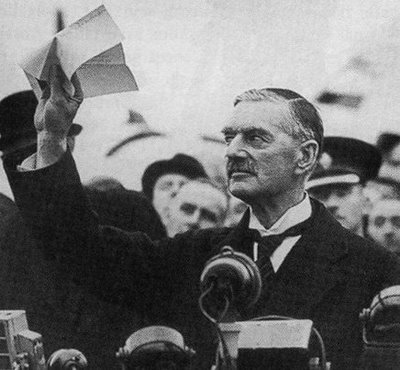What Bill Hicks knew about Obama: peace in our time
 YOU know what happens when Obama went behind the screen? Bill Hicks told us in 1993:
YOU know what happens when Obama went behind the screen? Bill Hicks told us in 1993:
“No matter what you promise on the campaign trail, when you win, you go into this smoke-filled room with the 12 industrialist capitalist scum-fucks who got you in there. And you’re in this smoky room, and this little film screen comes down, and a big guy with a cigar goes, ‘Roll the film.’ And it’s a shot of the Kennedy assassination from an angle you’ve never seen before… And then the screen goes up and the lights come up, and they say to the new president, ‘Any questions?'”
Says Obama:
And we must be a source of hope to the poor, the sick, the marginalized, the victims of prejudice–not out of mere charity, but because peace in our time requires the constant advance of those principles that our common creed describes: tolerance and opportunity; human dignity and justice.
Peace in our time is like peace for our time (see photo above of Nevill Chamberlain agreeing peace with Hitler). What could go wrong?
Simon Tisdall wonders:
[T]he do-nothing, hand-wringing favoured by Turkey’s international allies may not be politically sustainable much longer as the Syrian crisis inexorably expands not just into Turkey but into Iraq, Lebanon and the Israeli-occupied Golan Heights, too. Turkey will not go it alone, despite a parliamentary motion authorising cross-border operations. But pressure for more direct, multilateral intervention, most probably via Nato, is growing among Arab states and in the US, where Barack Obama’s hands-off stance is under fire from Republicans.
Walter Russell Mead adds:
The longer the war drags on, especially with Gulf Arabs supporting Sunni fighters, the more powerful jihadis and radicals become in the Syrian resistance, and the more communal hatreds and desire for revenge killings create the likelihood of bloodbaths and ethnic/religious killings across the country. But military intervention a la Iraq or even Libya gets us to Colin Powell’s Pottery Barn rule: if you break it, you own it.
Lately, our sense that a regime change in Syria would weaken Iran in the region and put real pressure on the mullahs to cut a deal on the nuclear issue has led us to think about ways the United States could help the resistance shorten the war short of overt military intervention. We get the impression that some people in Washington are also thinking about this, and that the nature and level of American aid to the resistance is changing.
And in Mali? Bruce Whitehouse notes:
Pentagon-sponsored training was provided to a broad cross-section of officers and NCOs in the Malian military, of which the defectors (most of them Tuareg) made up a minority. US-trained personnel fought on both sides of the conflict: at best the effects of their training were canceled out, at worst they were negligible. The problem with the US military’s training program wasn’t that it benefited the wrong people, it’s that it didn’t work. Following exercises in 2009, detailed in Wikileaks, even one of the Malian army’s most elite units got poor evaluations despite lengthy collaboration with US trainers. Whatever “advantage” such collaboration may have provided, it was the last thing the Tuareg — experienced desert fighters — needed to defeat Malian government forces.
Neville Chamberlain diplomacy, by John Glaser:
The Pentagon has already sent more than $82 million into counterterrorism assistance for six African countries so far this year. The top recipients are Uganda, Kenya, Burundi and Djibouti – all key proxies for Washington’s covert war on al-Shabab in Somalia, where the most US interventions are concentrated…. Even the Obama administration has quietly acknowledged the fact that their military involvement in Somalia may create more problems than it solves, with one administration official telling the Washington Post in December there is a “concern that a broader campaign could turn al-Shabab from a regional menace into an adversary determined to carry out attacks on U.S. soil.”
Do you abandon people? Many Malians cheer the French military:
“I salute the French for coming to our aid,” Mariam Coulibally, said balancing a heavy basket of grocery on her head. “God knows where we would have been if they had not arrived in time,” she added. On one of Bamako’s main streets the French and Malian flags hang side by side. Traders are also doing a brisk business selling the French flag to motorists.
Can Obama see no good reason for ever going to war?
Peace, then. How do you get it..?
Obama said: “A Decade of War Is Now Ending.”
David Cameroan said: Global War on Terror Will Last “Decades”.
So. As one decade ends, another begins.
Here’s to a future of change…
Posted: 23rd, January 2013 | In: Politicians Comment | TrackBack | Permalink


